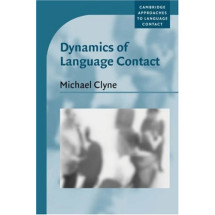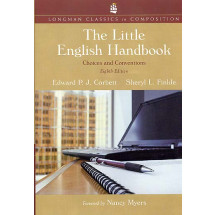From Homer ("winged words") to Robert Burns ("Beware a tongue that's smoothly hung") to Rudyard Kipling ("Words are, of course, the most powerful drug used by mankind"), writers from all over the world have put pen to paper on the inexhaustible topic of language. Yet surprisingly, their writings on the subject have never been gathered in a single volume. In Words on Words, David and Hilary Crystal have collected nearly 5,000 quotations about language and all its intriguing aspects: speaking, reading, writing, translation, verbosity, usage, slang, and more. As the stock-in-trade of so many professions--orators, media personalities, writers, and countless others--language's appeal as a subject is extraordinarily relevant and wide-ranging. The quotations are grouped thematically under 65 different headings, from "The Nature of Language" through the "Language of Politics" to "Quoting and Misquoting." This arrangement enables the reader to explore a topic through a variety of lenses, ancient and modern, domestic and foreign, scientific and casual, ironic and playful. Three thorough indexes--to authors, sources, and key words--provide different entry points into the collection. A valuable resource for professional writers and scholars, Words on Words is for anyone who loves language and all things linguistic.
Part 1 Language: the nature of language - the nature and functions of language; language in thinking and thought - thinking and reasoning in relation to speech and language; language myths and origins - the origins and early history of speech and language
body language - facial expressions, gestures, and other forms of non-verbal communication; meaning and sense - the nature of meaning, definition, sense and nonsense; words or deeds - the choice between talk and action, language and living; ever-changing language - continuity and change in language over time - loan words and neologisms; arguing about usage - issues of usage and correctness in language; the language of youth and age - child language, and the changes between youth and old age.
Part 2 Languages: language diversity - the world's languages, language identity, endangerment, maintenance and death; languages observed - the supposed qualities of different languages; bilingualism and multilingualism - being proficient in more than one language; translating and interpreting - the task of translation and interpreting; teaching and learning - principles and practice of language teaching and learning; foreigner talk - impressions of foreign languages, speech by and to foreigners.
Part 3 Analyzing language: exposing language - terms and techniques for analyzing language, linguistics and philology; speaking - the nature and functions of speech and speaking; pronunciation - speech sounds, vocal organs and the sound of the voice; listening - the nature and functions of listening and hearing; reading - the nature and functions of reading and books; writing - the nature and functions of writing, techniques of successful writing; learning to read and write - literacy, spelling and its reform, writing systems; grammar - grammar, grammars and points of grammatical usage; dictionaries - dictionaries and lexicographers.
Part 4 Good and bad language: the nature of eloquence - oratory, eloquence, rhetoric and other forms of good or bad expression; the art of conversation - conversational topics and strategies; subject-matter - topics, knowledge, opinions and beliefs as expressed by language; language clear and unclear - obscurity, vagueness, imprecision, ambiguity and other issues of clarity; saying too much - verbosity, long-windedness and other forms of excessive speech or writing; saying just enough - brevity, taciturnity, conciseness, and other forms of economy in speech or writing; keeping quiet - the nature and functions of silence and pause; friendly language - words of comfort, love, apology, gentleness, praise and tact; the language of flattery - flattering, smooth, and insincere language; unfriendly language - speaking or writing sharply, sarcasm, ridicule, anger, insult and slander; quarrels and arguments - quarrelling, disputing, arguing, and debating; truth and lies - telling the truth, lying, secrets, vows and other promises.
Part 5 Words: words, words, words - words in general, their natur
David Crystal writes and lectures on language and linguistics. His recent books include The Cambridge Encyclopedia of Language and The Penguin Dictionary of Language. He is honorary professor of linguistics at the University of Wales, Bangor, and a past president of the Society of Indexers.
Hilary Crystal practiced for several years as a speech therapist and has worked editorially on various projects, including The Cambridge Encyclopedia.












